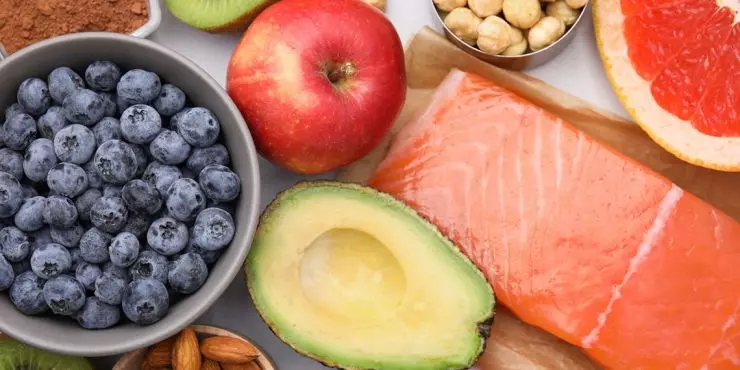
In today’s world, managing weight has become a central focus for many people, not just for appearance, but more importantly, for health. Obesity and being overweight are linked to a variety of health issues, including heart disease, diabetes, high blood pressure, and high cholesterol. However, weight loss is not about quick fixes or extreme measures—it’s about creating lasting, healthy habits that support overall well-being.
Weight Loss – How to Safely and Effectively Manage Weight
Weight loss is about more than just reducing numbers on a scale. It’s about improving your body’s overall health, from reducing your risk of chronic diseases to improving energy levels and mental clarity. Before embarking on a weight loss journey, it’s important to understand a few key concepts:
- Caloric Balance: Weight management is largely about caloric balance—calories consumed versus calories burned. To lose weight, you need to create a caloric deficit, meaning you consume fewer calories than your body needs for energy.
- Body Composition: Weight loss should focus on fat loss, not just weight loss. Building and maintaining muscle mass through exercise is essential for a healthy metabolism and long-term success.
- Patience is Key: Safe and sustainable weight loss is typically 1 to 2 pounds per week. Rapid weight loss can lead to muscle loss, nutritional deficiencies, and a greater chance of regaining the weight.
Setting Realistic Goals
One of the most important aspects of weight loss is setting realistic, achievable goals. Focus on long-term success rather than short-term gains. When setting your goals, consider:
- Health-Oriented Goals: Aim for goals such as improving energy levels, reducing blood pressure, or lowering cholesterol levels rather than just focusing on weight loss.
- Break It Down: Break your weight loss goal into smaller, manageable milestones. For example, aim to lose 5% of your current body weight first. Surprisingly, even small amounts of weight loss can improve your health.
- Avoid Unrealistic Timelines: Give your body time to adapt to changes. Slow and steady wins the race when it comes to sustainable weight loss.
Balanced Nutrition: What to Eat and What to Avoid
A well-balanced diet is the foundation of effective weight management. This doesn’t mean crash dieting or extreme food restrictions; rather, focus on nourishing your body with the right nutrients.
Foods to Include:
- Fruits and Vegetables: Aim for a variety of colorful fruits and vegetables, which are rich in vitamins, minerals, and fiber. Fiber helps you feel full and supports digestion.
- Lean Proteins: Include lean sources of protein, such as chicken, turkey, fish, beans, lentils, and tofu. Protein is crucial for maintaining muscle mass, which helps burn calories even at rest.
- Whole Grains: Choose whole grains like brown rice, quinoa, whole wheat bread, and oats. These provide sustained energy and keep you full longer.
- Healthy Fats: Incorporate healthy fats from sources like avocados, nuts, seeds, and olive oil. Healthy fats are essential for brain function and overall health.
Here is a good overview of the 12 best foods to include in your daily diet.

Foods to Limit:
- Processed Foods: Processed and packaged foods are often high in unhealthy fats, sugars, and preservatives, which can contribute to weight gain and other health issues.
- Sugary Drinks: Avoid sugary sodas, juices, and energy drinks. These add unnecessary calories and sugar and chemicals without offering any nutritional benefit.
- Refined Carbs: Limit foods like white bread, pastries, and processed snacks, which can cause blood sugar spikes and lead to overeating.
A great place to start is by considering the Mediterranean diet which can be viewed as the closest a one-size-fits all approach to eating well. The Mediterranean diet may be a beneficial way of eating for most of the population as it focuses on consuming mostly fruits and vegetables, whole grains, healthy fats, fish and lean proteins and consuming things like red meat, dairy, and red wine in moderation.
Learn more about the Mediterranean diet.
Exercise & Movement
Physical activity is a vital part of weight management. Not only does exercise help you burn calories, but it also improves mood, strengthens muscles, and boosts overall health. Sometimes the word “exercise” can give people a bad taste in their mouth, so instead of thinking “exercise” think movement instead. Simply aiming to move your body more throughout the day has some incredible benefits. Here are some recommendations to get started:
- Watch Your Sit Time: Start monitoring how much time you spend sitting or spend still. You will likely be shocked by how much time we all sit. Do your best to then begin to change this pattern. Aim for 5 minute movement breaks every hour. This can be as simple as standing while stretching, pacing, etc.
- Take the Stairs: A great way to easily incorporate more movement into your daily life is by always opting for the stairs.
- Park Farther Away: Whether you are at work or grocery shopping, instead of looking for that front row parking space choose the farthest away spot. This allows you to get more steps in without even noticing it.
- Start Small: If you’re new to exercise, start with short, manageable workouts and gradually increase intensity and duration over time.
- Aim for Consistency: Aim for at least 150 minutes of moderate aerobic activity or 75 minutes of vigorous aerobic activity each week, along with muscle-strengthening exercises twice a week. There is a lot of flexibility in this, meaning if you enjoy walking aim to walk for 150 minutes weekly or if you enjoy running aim for 75 minutes of running each week.
- Mix It Up: A combination of cardio (such as walking, swimming, or cycling) and strength training (such as weightlifting or bodyweight exercises) is ideal for weight loss and maintaining muscle mass. Mixing it up will also prevent exercise boredom by keeping things fun and interesting.
Mindful Eating, Start Listening to Your Body
Mindful eating is about being present during meals and listening to your body’s hunger and fullness cues. This can help prevent overeating and emotional eating. Here are some tips for practicing mindful eating:
- Eat Slowly: Take time to chew and savor your food. It takes about 20 minutes for your brain to recognize that you’re full. Before you go for seconds take 5 minutes to check to see if you are really hungry or not. You will be surprised that most of the time we don’t actually need that second helping.
- Drink Water: Make sure you are hydrated as thirst can sometimes appear as hunger. Before eating aim to drink an 8oz glass of water. Or if you are feeling like snacking, aim to drink water first and then determine if you are actually hungry and need that snack.
- Eliminate Distractions: Avoid eating in front of the TV or computer. Focus on the experience of eating and how the food makes you feel. It’s very easy to overeat when we are focused on something else like our favorite Netflix show.
- Recognize Emotional Eating: Stress, boredom, or emotions can trigger eating even when you’re not hungry. Find alternative ways to cope with emotions, such as going for a walk, journaling, or practicing meditation.
The Role of Sleep and Stress in Weight Loss
Both sleep and stress management play crucial roles in successful weight management.
- Get Enough Sleep: Lack of sleep can disrupt hunger hormones and increase cravings for unhealthy foods. Aim for 7-8 hours for adults and 9-10 hours for children. Getting enough sleep per night is important to support your weight loss efforts.
- Manage Stress: Chronic stress increases the hormone cortisol, which can lead to overeating and weight gain. Practice stress-reducing activities such as yoga, deep breathing, or spending time in nature.
Professional Support
For some individuals, professional guidance can be beneficial for achieving weight loss goals. At Northwest Family Clinics we offer Weight Loss & Nutritional Counseling. Learn more about these services and if they are right for you.
Your doctor may also prescribe weight loss medications in certain circumstances. You can learn more about these medications as well as Ozempic explained here.
When to Seek Medical Advice
If you’re struggling to lose weight or have underlying health conditions such as diabetes, high blood pressure, or heart disease, consult your doctor before starting any weight loss plan. Your doctor can help guide you in making safe choices that align with your health needs.
Additionally, if you experience rapid or unexplained weight loss, this could be a sign of an underlying health condition that requires medical attention. Please keep in mind, if you haven’t put much effort into weight loss but find yourself fitting into clothes you haven’t worn for a while, you need to talk to your doctor.
Make It a Lifestyle
Managing your weight is not about quick fixes—it’s about creating sustainable habits that support long-term health. By focusing on balanced nutrition, regular exercise, and mindful habits, you can achieve your weight loss goals safely and effectively.
Remember, every body is different, and your weight loss journey may look different from someone else’s. Be patient, stay consistent, and focus on progress, not perfection. If you have any questions about safe weight loss or want personalized guidance, don’t hesitate to reach out to your healthcare provider. We’re here to support you on your journey to better health!
Have more questions about your child’s weight? Be sure to check out the following articles for more information:
Healthy Weight for Children
Childhood Obesity Facts
Understanding Your Child's Nutritional Needs
How Much Physical Activity Does Your Child Need?